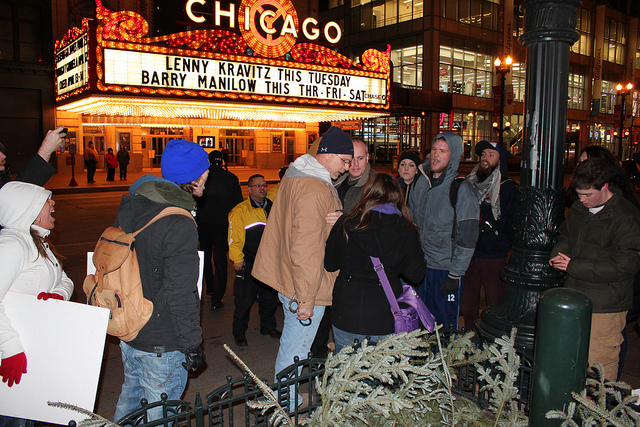Separating Fact From Fiction In Illinois' New Eavesdropping Bill
By Chuck Sudo in News on Dec 11, 2014 5:30PM
You may have seen your social media feeds clogged with links to an article from The Free Thought Project claiming the Illinois General Assembly has once again made it illegal to record police—after years of legal challenges that eventually ruled the state’s previous eavesdropping law unconstitutional.
We know our social media channels have been rife with “the sky is falling” rhetoric that Illinois is once again veering toward becoming a police state but the truth isn’t so well-defined. So let’s try to separate fact from fiction here.
The General Assembly did pass an amendment to Senate Bill 1342 during its recent veto session (by overwhelming, veto-proof margins) and the bill is awaiting Gov. Pat Quinn’s review and signature to become law. The amendment specifically states citizens commit eavesdropping if they “(use) an eavesdropping device, in a surreptitious manner, for the purpose of overhearing, transmitting, or recording all or part of a private conversation to which he or she is not a party unless he or she does so with the consent of all the parties to the conversation; (2) uses an eavesdropping device, in a surreptitious manner, for the purpose of transmitting or recording all or any part of any private conversation to which he or she is a party unless he or she does so with the consent of all of the parties to the private conversation; or (3) intercepts, records, or transcribes, in a surreptitious manner, any private electronic communication to which he or she is not a party unless he or she does so with the consent of all other parties to the private electronic communication.”
At issue here is what is defined as a private conversation and what is considered public. Break out your smartphone to record police politely interacting with citizens on a street as part of their job is allowed, and only if the person filming isn’t interfering with a police officer’s ability to carry out his or her job.
The American Civil Liberties Union worked with lawmakers on this amendment in an attempt to protect the rights of civilians from being eavesdropped by law enforcement officials and praised the bill for keeping these protections intact. However, the ACLU wasn’t so keen on provisions to the bill that allows for police eavesdropping by law enforcement officials and informants for 24 hours before a warrant is necessary, but only for serious crimes such as murder, kidnapping/human trafficking and brutal sexual assaults, and only with permission from a state’s attorney.
Elaine Nekritz and Kwame Raoul, the state senators who sponsored the bill, believe it addresses the main issue addressed in the courts that civilians should be afforded a reasonable expectation of privacy.
In short, it is still OK for civilians in Illinois to record their interactions with police officers while they’re on duty. Just don’t interfere with them doing their job.
